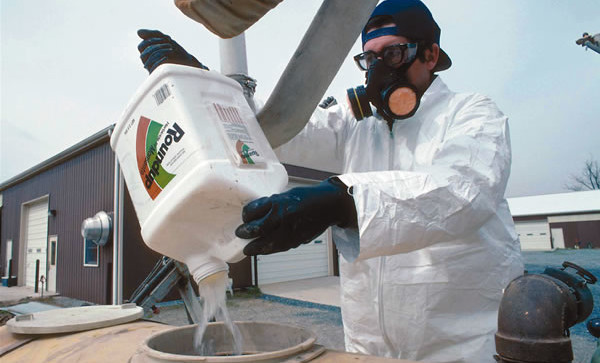The Committee on Environment, Food Safety & Public Health (ENVI) formally objected Tuesday to the re-authorization by the European Commission of the herbicide glyphosate.

Source: www.guengl.eu
A majority of the ENVI members supported this objection (36 in favour, 6 against and 18 abstentions), which was voted for on Tuesday.
ENVI stated; “So long as serious concerns remain about the carcinogenicity and endocrine disruptive properties of the herbicide glyphosate, which is used in hundreds of farm, forestry, urban and garden applications, the EU Commission should not renew its authorisation. Instead, it should commission an independent review and disclose all the scientific evidence that the European Food Safety Authority (EFSA) used to assess glyphosate.”
The non-binding resolution calls on the EU executive to table a new draft. MEPs want the European Commission and the European Food Safety Authority to “immediately disclose all the scientific evidence that has been a basis for the positive classification of glyphosate and the proposed re-authorisation, given the overriding public interest in disclosure”.
The motion for a resolution will be put to a vote at the 11-14 April plenary session of the European Parliament in Strasbourg.
National experts sitting in the Standing Committee on Plants, Animals, Food and Feed (Phytopharmaceuticals Section) will vote to adopt or reject the Commission proposal by qualified majority in May. If there is no such majority, it will be up to the European Commission to decide.
MEP Pavel Poc (S&D, CZ), who drafted the motion for a resolution, said, “The fact that we have to resort to a parliamentary objection shows that something has gone wrong in the decision process.
“Glyphosate has been classified as probably carcinogenic by the World Health Organisation (WHO). While the industry claimed that the substance can be completely metabolised, it is now clear that glyphosate residues are everywhere: in the environment, in many products we consume every day, in our bodies.”
“The re-authorisation of glyphosate for another 15 years, as proposed by the European Commission, is irresponsible and unacceptable. Glyphosate is one of the most widely used herbicides in Europe. It ends up in our food, in our water and in our environment. There are many indications that the substance is dangerous for human and animal health and that it has harmful environmental impacts, such as pollution of ground and surface waters,” added Kateřina Konečná, coordinator for EU political GUE/NGL group on the committee.
THE GLYPHOSATE BOX
10 Things You Need to Know about Glyphosate
Dutch GUE/NGL MEP Anja Hazekamp, who had already proposed an objection to the re-authorisation last year, is glad that the ENVI committee has now taken up the concerns of the GUE/NGL group. Hazekamp strongly criticises the European Commission for proposing a new long-term authorisation. “With this decision the European Commission fails to protect the health of humans, animals and the environment. Member states and more than 1 million citizens have already expressed their concerns over the re-authorisation. We will use all possible means to prevent the European Commission from contaminating our environment for another 15 years,” says Hazekamp.
German GUE/NGL MEP Stefan Eck also involved in recent objections, adds: “Glyphosate definitely causes major health risks to animals. According to IARC, [the World Health Organisation agency specialised in cancer which assessed all existing scientific studies on glyphosate,] there is enough scientific evidence to define this herbicide as carcinogenic in animals. Humans are also exposed to major health risks by the widespread use of glyphosate. In this case, the precautionary principle should be fully respected!”



















Today’s “agriculture” might well be the greatest technological fraud and disaster of all time—at least rivaling and perhaps surpassing the dangers of our nuclear-based and petroleum-based energy sources.
We simply must come up with new paradigms. Small, organic farms networking with each other and their local communities—and replacing the monolithic monstrosities of today—would provide employment to tens of millions of people.
Wishful thinking? Perhaps. But, once again, a new paradigm is desperately needed.
Perhaps more a return to the old paradigm? Small self sufficient and networked community sourcing of goods and services are what built these nations. Once we started getting into economies of scale we start to realize that just because it’s good for a corporation does not mean it’s good for societal structures and the economy of a whole. Most economic models assume that the money stays in the community in which its spent- more and more often this is not the case, with the money funneled to a higher and more central level. The highest level here is not within the country in which the good was purchased or sourced but often in the country of a corporation’s headquarters.
I make a point of buying from local retail stores and trying to barter or source as much as I can from my immediate community. In the local scale scenario, the folks running businesses think I. Terms of “What is good for my community? Will this be good for my children.” As opposed to the national or multinational strategy of “We created this stuff, who can we sell it to so we can still make a profit?”
Local folks would never make decisions like this. It’s time to come back from the financial feudalism forming around the multinational agricultural corporation as the feudalistic lord.